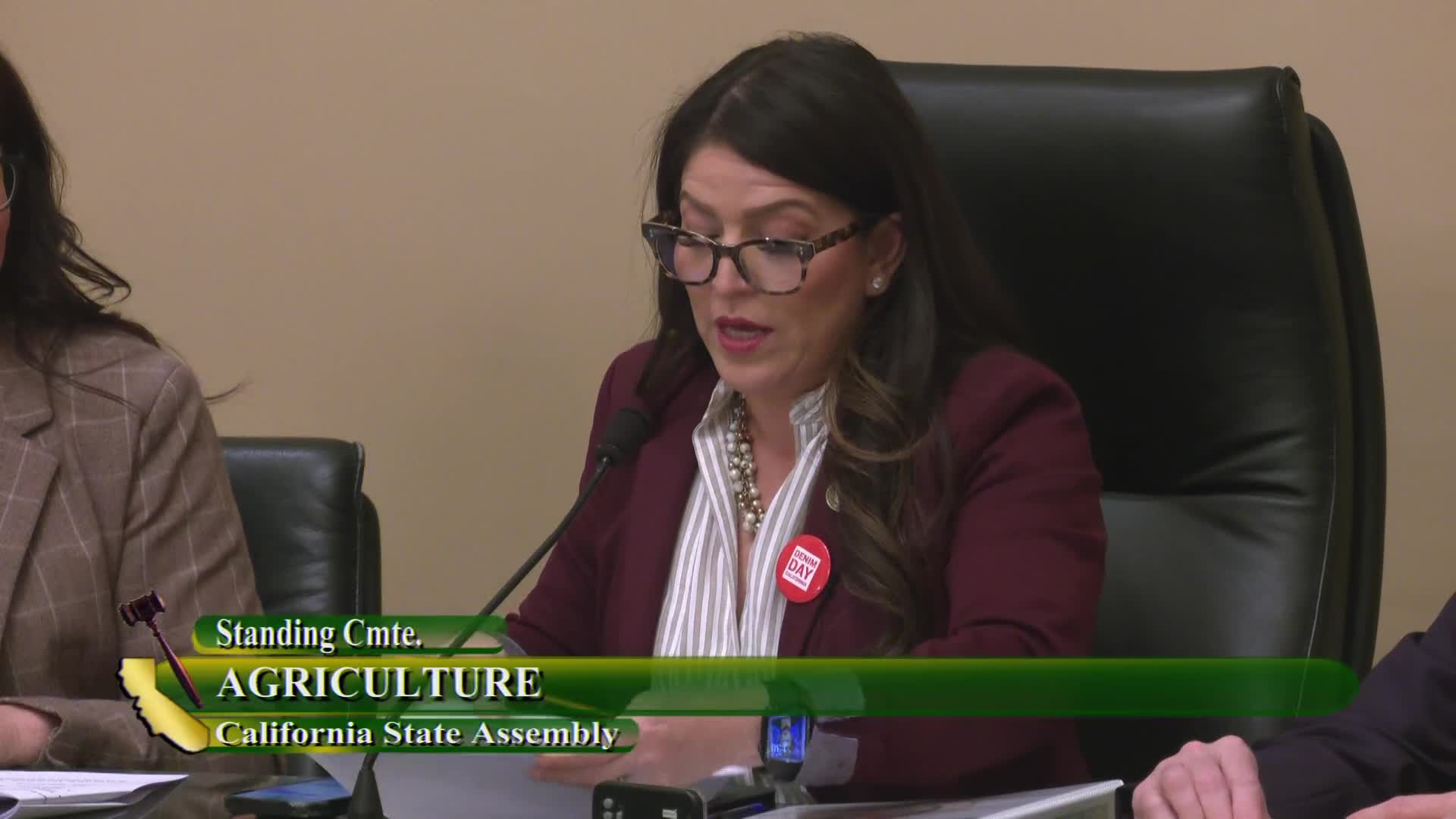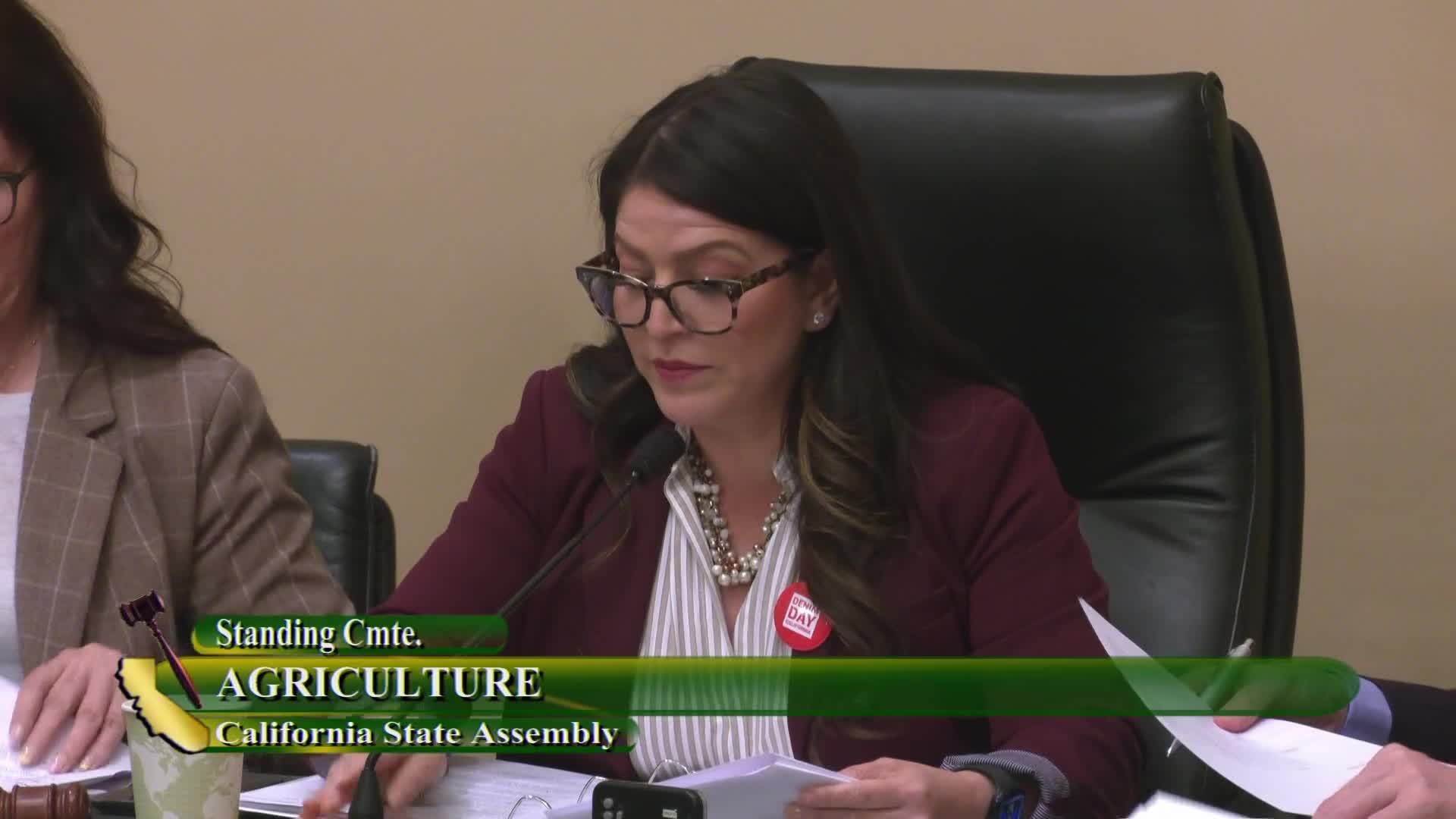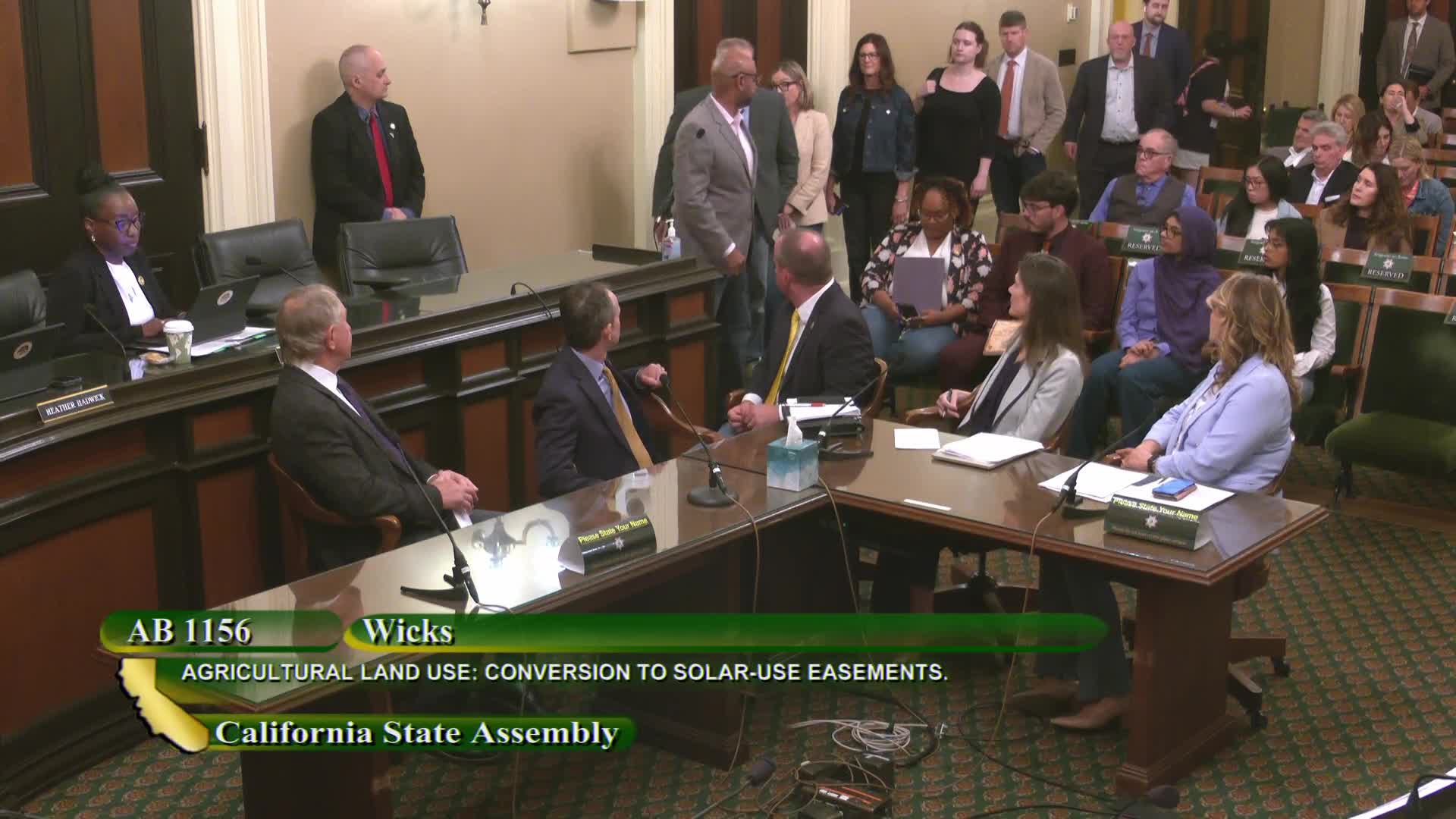Article not found
This article is no longer available. But don't worry—we've gathered other articles that discuss the same topic.

Assembly panel advances bill to allow suspension of Williamson Act contracts for solar on water-constrained farmland

Assembly panel unanimously advances bill to enshrine Farm to School program in state law

